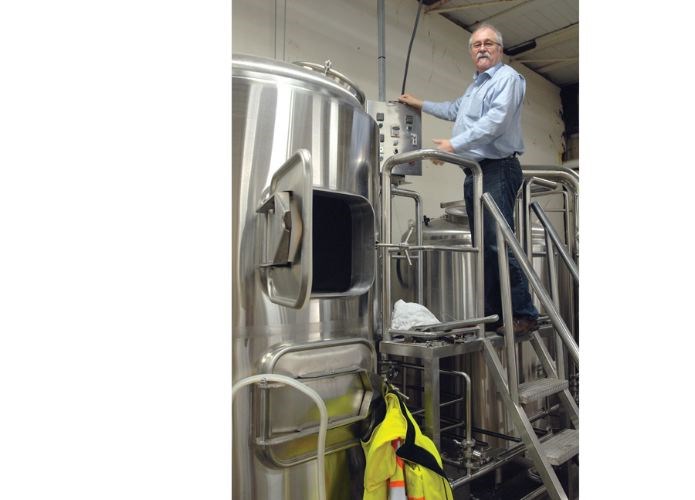Pacific Western Brewery is opening another Prince George brewery.
The new facility will be located inside the walls of its current beer factory in some empty space created by other capital upgrades done recently.
According to brewmaster Henryk Orlik, when he discovered the amount of free space at his disposal, he knew exactly what he wanted to do with it.
"If we wanted to test a new recipe, the smallest batch we could do was 5,000 gallons (190 hectolitres). That's a big amount, a big risk to take on something that might not work with the public," he said. "Our new 'pilot' brewery will allow us to make much smaller batches (10 to 50 hectolitres). We can experiment more, make recipes better, do one-off varieties, be much more flexible in the lines we can do."
PWB's latest line of beer launched this summer was not a risk for the local sudsmaker since the company had no kolsch in its repertoire. Kolsch is one of the world's standard styles of beer, and Orlik is a specialist in this German staple brew.
But devoting staff and facility resources to cooking, bottling, storing, shipping and selling a less conventional brand like the seasonal Sugarloaf flavour released last year - a chocolate stout - under their all-organic Scandal label took some crossing of fingers.
The Sugarloaf risk paid off but it made apparent to PWB's ownership that experiments must be attempted in order to move forward and that was uncomfortable with only the one large-run option.
What made the situation even worse for experimenting, and another vote in favour of getting an in-house microbrewery, was the provincial tax structure for breweries. Under the old rules, once a brewery passed the threshold of making 160,000 hectolitres in a year, a retroactive tax rate kicked in. In recent years PWB was always on that doorstep, meaning they would have to suddenly find about $9 million dollars for the tax collector or shut down operations for the rest of the year whenever they reached 159,999 hectolitres.
If one of their brands was unpopular, that was wasted space on the hectolitre tally, and thus bad for business and taxes, one more reason to not try a new beer idea.
The provincial government has suggested their tax structures are apt to change, specifically for PWB but also for developing other small-scale breweries (PWB is considered one of the small players on the brewery business landscape). This has not yet been confirmed due to a provincewide review of all provincial liquor laws and policies.
PWB is preparing to participate in the provincial government's liquor review. The Liquor Distribution Branch has postponed a decision on its beer-handling charges and production volumes while the matter is under review.
Whether the province opts to keep the retroactive tax system or move to a sliding scale system for breweries to pay as they go go, the pilot brewery would play a vital role in keeping quantities under control for PWB.
In the meantime, Orlik is just happy that with the opportunity for study.
"We want to see, mostly, how yeast reacts," he said. "We want to see how that affects the flavour profile when used with our water and the other ingredients we use. I'm hoping to interest UNBC on working with me on a fermentation control study, study the influences on the yeast, and then we can do a better job of controlling the taste of each bottle and can of beer we make."
The pilot brewery should be operational, said Orlik, by the end of this week and could conceivably allow for a different kind of beer every week.



